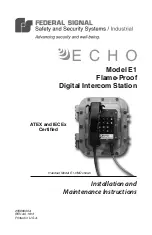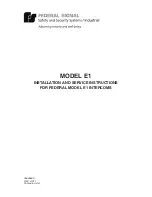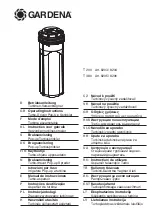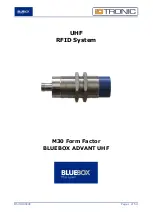
Publication 1734-UM015A-EN-E - November 2009
Install POINT I/O DeviceLogix Modules
25
System and Power Considerations
There are no power terminals on the POINT I/O DeviceLogix module. The
module gets its power from the Field Power Bus of the back plane. Depending
on your system and network topology, power can be applied through one of
the following:
•
1734-PDN (DeviceNet adapter)
•
1734-ADN or 1734-ADNX (DeviceNet adapter)
•
1734-ACNR (ControlNet adapter)
•
1734-AENT or 1734-AENTR (EtherNet/IP adapter)
•
1734-EP24DC (Expansion power supply)
•
1734-FPD (Field power distribution)
Channel
Terminal Number
I/O
Common
Voltage
0
0
External
(1)
(1)
Common connections require an external connection, such as a 1734-CTM module.
External
(2)
(2)
Supply Voltage Connections require an external connection such as a 1734-VTM module.
1
1
2
2
3
3
4
4
5
5
6
6
7
7
10/28.8 V DC is supplied through the internal power bus.
Summary of Contents for 1734-8CFGDLX
Page 6: ...Publication 1734 UM015A EN E November 2009 4 Table of Contents Notes ...
Page 10: ...Publication 1734 UM015A EN E November 2009 8 Preface Notes ...
Page 16: ...Publication 1734 UM015A EN E November 2009 14 Introduction Notes ...
Page 109: ...Publication 1734 UM015A EN E November 2009 Peer Data Maps 107 Notes Allen Bradley HMIs ...
Page 110: ...Publication 1734 UM015A EN E November 2009 108 Peer Data Maps Notes ...
Page 111: ...Allen Bradley HMIs ...
















































